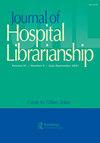The Pivot
Q3 Social Sciences
引用次数: 1
Abstract
In terms of a universal phenomenon, consider this: Ask any friend or colleague to name a time when seeking medical care, that he or she felt fear, pain or frustration, or even experienced outstanding support or relief from these feelings, and you will get a graphic and detailed recollection of an event from their personal health memory bank. Every medical care consumer has their own intensely personal memories of past care events. Most are eager to offer listeners a timeline followed quickly by a discussion of an array of medical care experiences. These recollections often involve details of conversations from a doctor’s visit or perhaps a glimpse of a harrowing trip to an ER. Perhaps they repeat the compassionate reassurance of a nurse, the direct and solemn recommendation of a specialist or the chat at check-in with ancillary staff. There will be stories of wellness checks peppered with the lasting first impressions of dawning understanding evolving from owning a new diagnosis. Maybe they put into words how they came to the realization of a now permanent change in capacity or a loss of function. To varying degrees, we all seem to have these sorts of retained imprints, and most are willing to share their own medical landmarks through casual conversation. These anecdotal stories will flow on to feature how one person learns to grapple with a diagnosis that brings threats to the illusions of one’s own safety. These reminiscences might be decorated with health-care successes of a patient regaining their independence while learning to overcome and normalize new personal health issues, or lean toward impressions from a scary radiology scan, painful lab draws and even shadowy images of routine childhood vaccinations and visits. But across these lifetimes, most folks would be hard-pressed to frame any health-care memory evoking more confusion, uncertainty and anxiety than those formed in the early months of 2020 as hospitals, doctor’s offices, clinics and diagnostic service centers across the nation along with health-care facilities world-wide in concert with private civilian industry histrionically changed course in response to the global threat of the COVID-19 pandemic.枢轴
从一个普遍现象的角度来看,考虑一下这一点:让任何朋友或同事说出在寻求医疗护理时,他或她感到恐惧、痛苦或沮丧的时间,甚至从这些感觉中得到了卓越的支持或缓解,你会从他们的个人健康记忆库中获得对某一事件的生动而详细的回忆。每个医疗保健消费者都对过去的护理事件有着强烈的个人记忆。大多数人都渴望为听众提供一个时间表,然后快速讨论一系列医疗保健体验。这些回忆通常涉及医生就诊时的谈话细节,或者可能是去急诊室的痛苦经历。也许它们重复了护士富有同情心的安慰、专家直接而严肃的建议,或者在办理登机手续时与辅助人员的聊天。会有一些关于健康检查的故事,其中夹杂着从拥有新诊断到逐渐理解的持久第一印象。也许他们用语言表达了他们是如何实现能力的永久改变或功能的丧失的。在不同程度上,我们似乎都有这些留存的印记,大多数人都愿意通过随意的交谈分享自己的医学里程碑。这些轶事故事将继续讲述一个人如何学会应对一种对自己安全的幻想带来威胁的诊断。这些回忆可能以患者在学习克服和规范新的个人健康问题的同时重新获得独立的医疗保健成功为装饰,或者倾向于可怕的放射学扫描、痛苦的实验室绘图,甚至是儿童常规疫苗接种和就诊的模糊图像。但在这一生中,大多数人都很难建立起任何比2020年初形成的记忆更令人困惑、不确定性和焦虑的医疗记忆,因为医院、医生办公室、,为了应对新冠肺炎大流行的全球威胁,全国各地的诊所和诊断服务中心以及世界各地的医疗保健设施与私营民用行业一起戏剧性地改变了路线。
本文章由计算机程序翻译,如有差异,请以英文原文为准。
求助全文
约1分钟内获得全文
求助全文
来源期刊

Journal of Hospital Librarianship
Social Sciences-Library and Information Sciences
CiteScore
1.00
自引率
0.00%
发文量
43
期刊介绍:
The Journal of Hospital Librarianship is the first journal to specifically address the issues and concerns of librarians and information specialists in the field of hospital librarianship. This peer-reviewed journal focuses on technical and administrative issues that most concern hospital librarians, providing a forum for those professionals who organize and disseminate health information to both clinical care professionals and consumers. The Journal addresses a wide variety of subjects that are vital to the field, including administrative, technical and program issues that may challenge hospital librarians. Articles published in the Journal focus on research strategies, administrative assistance, managed care, financing, mergers, and more.
 求助内容:
求助内容: 应助结果提醒方式:
应助结果提醒方式:


